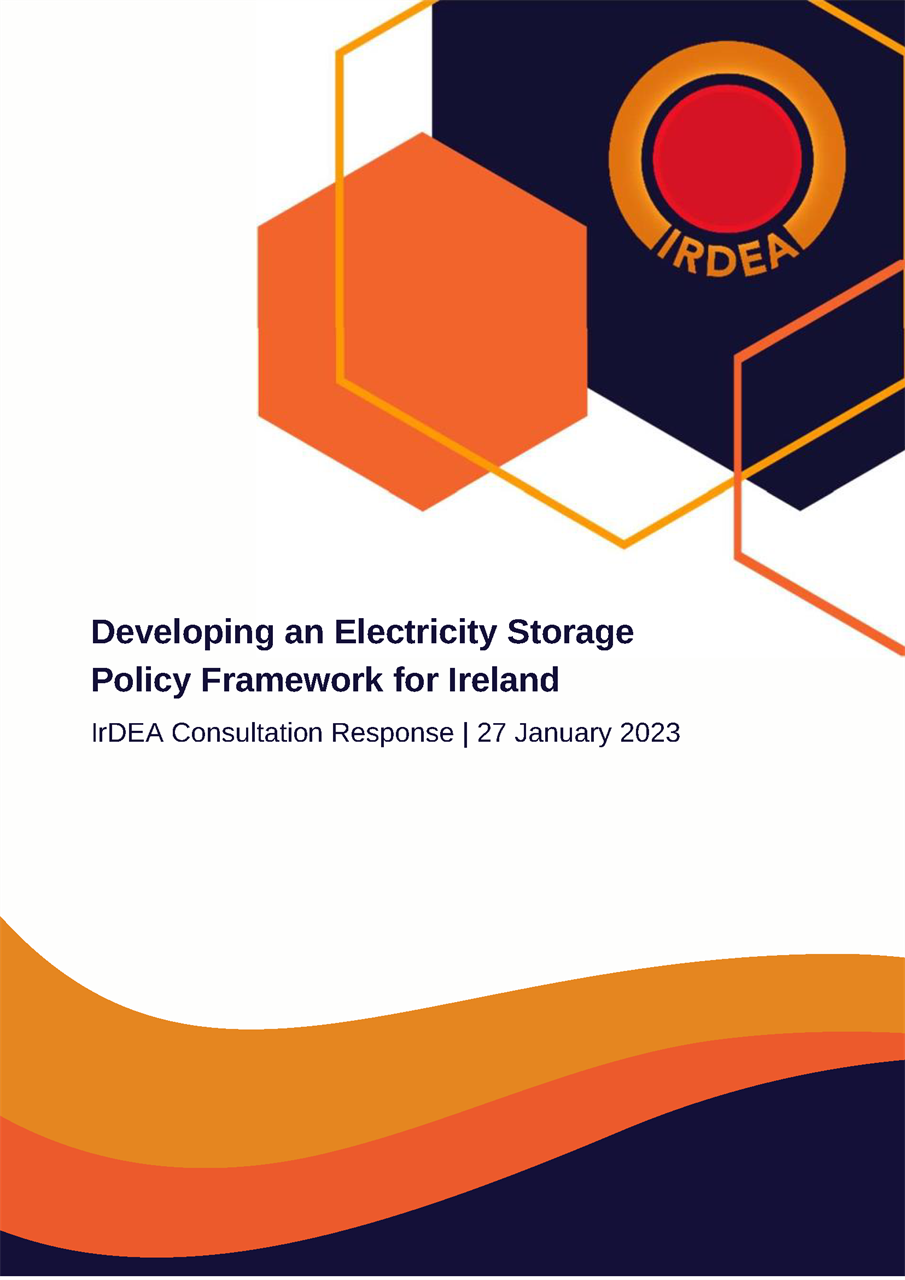
With thermal energy storage offering significant potential to underpin the delivery of district energy in Ireland, IrDEA took the opportunity of the government consultation on Developing an Electricity Storage Policy Framework for Ireland, which closed on 27 January 2023
At approx. 60 TWh per annum, heat makes up 42% of final energy demand in a typical year for Ireland (SEAI 2019). Decarbonisation in the sector has, however, lagged behind electricity, with total fossil fuel based CO2 emissions from building and industrial process heating remaining around 14.1 MtCO2. This equates to approx. 38% of total energy-related CO2 and 24% of total national greenhouse gas emissions – natural gas (39%), oil (36%), and coal and peat (25%) (SEAI 2019). Significant action must be taken to address this if Ireland’s net zero emissions ambitions are to be realised.
The Irish District Energy Association (IrDEA) aims to help address this problem by driving the development of the Irish district energy sector. Though relatively new and underdeveloped in Ireland, district heating is well-established as means of providing sustainable heating solutions to industrial, commercial and residential energy consumers. With between 54% (SEAI) and 58% (Europa-Universitat Flensburg 2019) of Irish building identified as being suitable for district energy, this form of heating is primed to lead the decarbonisation of the sector. Energy storage, particularly largescale thermal energy storage systems (TES), is an integral part of this.
IrDEA focused its submission on energy storage as it relates district energy sector, in particular thermal energy storage systems (TES). As a general comment, however, we would strongly encourage the expansion of the policy framework beyond electricity storage to facilitate a whole system approach with respect to energy storage.
The full submission can be viewed and downloaded here.